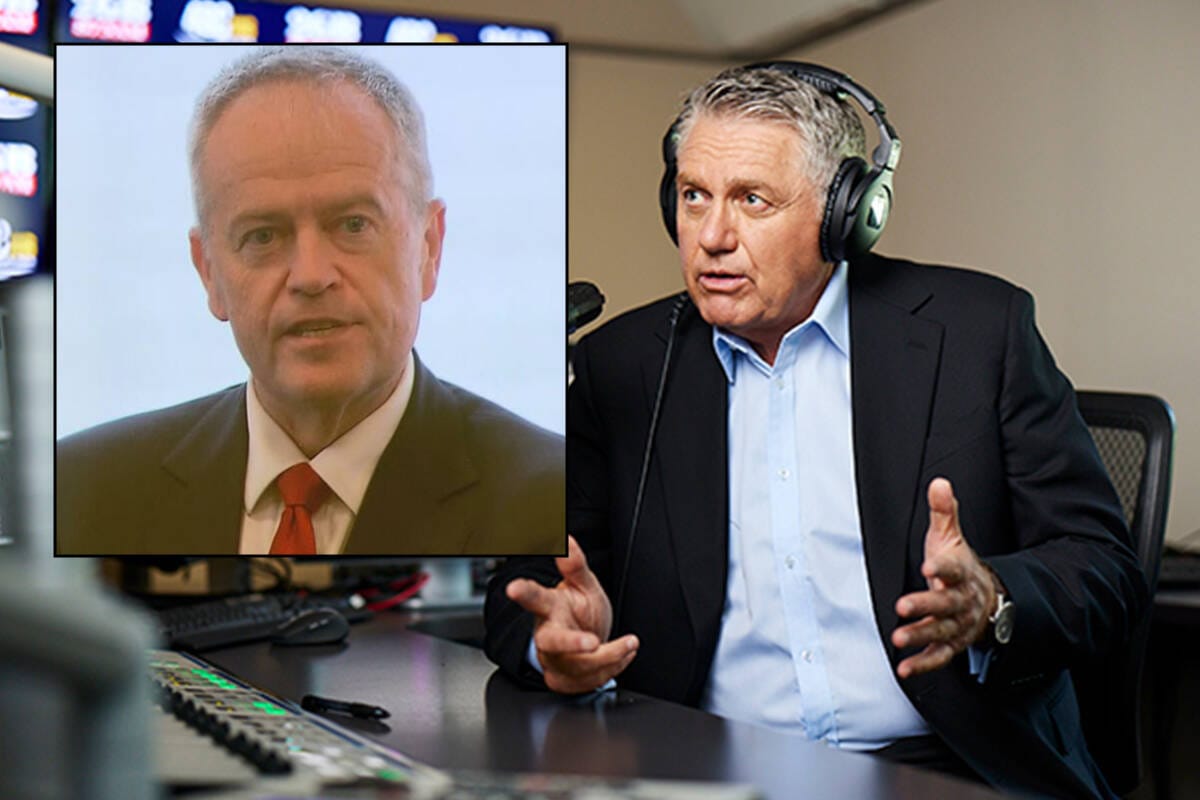
Ray Hadley interviews Bill Shorten
Disability organisations say NDIA must endorse them to provide advice
Disability Representative Organisations have called for "urgent clarification" after revelations an NDIS participant had their plan cancelled in response to a false accusation made by Ben Fordham on 2GB Radio.
They say the NDIA must explicitly accept that participants have a right to access advice for information about the scheme and to obtain advice for their circumstances.
Reacting to claims participants are just being coached to ‘game’ the scheme, People with Disability Australia Acting CEO Megan Spindler-Smith told abilityNEWS "there cannot be penalties for organisations like us helping participants to navigate the system."
"We are about making sure people have all the information they need to navigate a system fairly", Spindler-Smith affirmed. She questions suggestions that medical professionals are being coached in the language to be used when NDIS assessments are being conducted.
"If you go to see a specialist, they have a set of exact terminology," Spindler-Smith pointed out. "We make sure [people understand] the medical expert requirements or there are clear guidelines so things can be understood."
They also defend participants’ right to question the operation of the scheme.
“Advice, opinions about, or criticisms of the NDIS or NDIA are entirely separate from an individual's eligibility for the Scheme and vital need for supports, both in the law and the intent of the Scheme", Spindler-Smith says.
The statements follow last week’s revelations that NDIA CEO Rebecca Falkingham instructed deputies to “revoke access as quickly as possible” to a participant after criticism of the scheme was aired on conservative talkback radio. This led to a fast-track eligibility reassessment with payments put on hold just minutes after the email was sent.
Falkingham is currently on sick leave.
The email trail leading to the esposure of potential wrongdoing was discovered by the Saturday Paper’s Rick Moreton. The timing of the cancellation suggests Ray Hadley’s radio segments almost certainly acted as the catalyst for NDIA executive action.
If correct, the article implies Hadley’s voice was influential and critical in shaping the agency’s rushed response. There was no suggestion the announcer acted inappropriately, but the affair outraged disability organisations and advocates, who have described the NDIS’s actions as a “deeply unethical use of power”.
_______________________________________
[continue reading from website]
The NDIA is continuing to refuse to publicly respond to claims CEO Rebecca Falkingham personally intervened and directed senior staff to revoke a participant’s funding.
The Saturday Paper obtained documents under FOI legislation and discovered that radio announcer Ben Fordham played carefully selected video clips he claimed showed the participant was coached by doctors and others about NDIS "buzzwords" likely to grant access to the scheme.
Earlier the [then] NDIS Minister Shorten had been quizzed on the subject of NDIS "rorts", with excerpts from the tape being played.
Hadley’s broadcast appears to have been the flashpoint for NDIA’s internal response. Although emails reference a “Ben Fordham story”, the actions trace back to Hadley’s earlier interview with guest Minister Bill Shorten, with the implication that politics was driving the Agency’s subsequent actions.
The timing of the NDIA's response has raised serious concerns about procedural fairness. Shortly after the official letter was sent, on the afternoon of July 19, a delegate informed her colleagues by email that she had "completed the revocation decision, and the participants [sic] access status will cease effective the 17th July 2024".
Spindler-Smith insists an individual’s criticism of the agency should never be used to vary their supports and are demanding an urgent investigation into possible policy violations by the NDIA.
Disability organisations say they “believe these actions have crossed a line and threaten any level of trust between the NDIA and the disability community.”
"If there are concerns about whether a person with disability meets the eligibility criteria for the NDIS”, says Spindler-Smith, “this must be dealt with in accordance with procedural fairness and operational guidelines."
They said the disability community were actively trying to understand the changes to the NDIS, but that there "is a lot to get our head around”.
"As part of the transition, we were guaranteed a period for participants to make accidental mistakes and be able to resolve that. That is not fraud."
Spindler-Smith reiterated that to support participants, organisations "have access to accurate information on the changes." "There should not be penalties for organisations like us helping participants to navigate the system."
"People in the NDIA are not medical professionals themselves, so I question the idea that it's seen as coaching. Absolutely there should be education. I really doubt participants are going to doctors who are saying 'these are the words you need to use.'"
"The NDIA must act in the interests of Australians."
